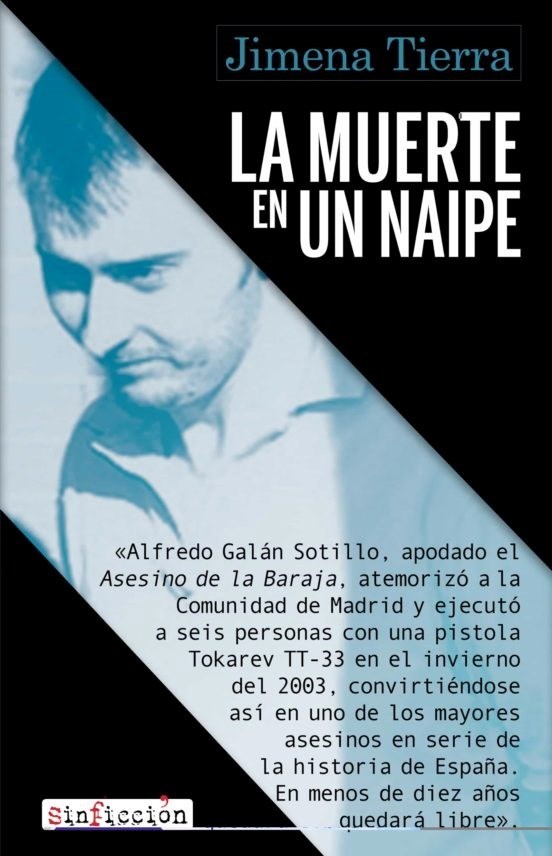Nine victims, a deck of cards, and a criminal who is just playing for fun.
On January 24th, 2003, Alfredo Galán Sotillo leaves his house with the intention of going for a walk in Madrid and killing someone. Anyone. The first victim is a man who is feeding his young son. He asks him to kneel down and executes him before the child’s eyes. At the scene of the crime he leaves a playing card.
The second victim is an 18-year-old male at a bus stop. Next to his body lay an Ace. Twelve hours later, the murderer goes to a bar in Alcalá de Henares (a small town close to Madrid) and shoots the manager’s son in the head. His mother tries to take refuge, but the killer manages to shoot her as well. However, the victim does not bleed to death, as Alfredo had planned, and he flees the scene without leaving a trace.
There is no connection between these murders, which all took place within such a short period of time. Nor do the victims’ profiles have anything in common.
Galán Sotillo is still at large. The next day, he shoots a couple in the town of Tres Cantos, north of Madrid. The man dies on the spot, but the woman manages to escape. At the scene, a deuce; a card representing the lovers. A month later, he murders another couple on a dirt road in Arganda del Rey (a town close to Madrid) and leaves two more cards.
A total of nine victims in just a few months: three seriously wounded and six brutally murdered at point-blank range. He had become The Playing Cards Murderer (El Asesino de la Baraja), one of the most wanted serial killers in Spain.
Galán Sotillo killed in cold blood, at random and with a peculiar identifying signature. He had terrorized the entire Community of Madrid and, after an arduous investigation, the police found a common element in all the murders: a Soviet-made pistol.
Although the survivors provided a sketch, officers only knew that he was a military man who had carried out missions in the Balkans.
On May 22, 2003, the police arrested an alleged culprit: a man who had served the country in the armed forces, with a very strong ideology, and who had been identified by the two women. It all added up. But soon after, it was proven that he was not El Asesino de la Baraja and he was released.
Two months later, an intoxicated Galán Sotillo went to the police station in Puertollano, in the Spanish province of Ciudad Real, and confessed to all the crimes, but nobody believed him. He was asked to provide a reliable clue that only the perpetrator of the crimes could know: that all the playing cards were marked with a blue dot. Alfredo Galán Sotillo was sentenced to 142 years in prison. In less than ten years he will be free.
RELEVANT DATA: Death on a Playing Card (La muerte en un naipe) is the book that gathers, in chronicle format and after months of investigation, the details of Alfredo Galán Sotillo’s killing rampage, the most wanted serial killer in Spain and one of the cases that has caused the most uproar in the media in the last few years.
The novel belongs to the Sin Ficción (Non-Fiction) Collection, a set of journalistic chronicles that gather the most controversial and publicized criminal cases of the last few years in Spain.
Its author, Jimena Tierra, is a writer and lawyer specialized in true crime. Her thrillers have been translated into English. She is also the curator of the literary festivals of crime fiction Galapanoir and Alicante Negra, promoting the development of noir culture through two fundamental pillars: the female role and the children and youth sector.
AUDIOVISUAL POTENTIAL: TV Series, Miniseries, Film, TV Movie.
LANGUAGES AVAILABLE: Spanish.

Adquirir los derechos
Para ponerte en contacto con nosotros completa el siguiente formulario y te responderemos en breve.
Error: Contact form not found.

